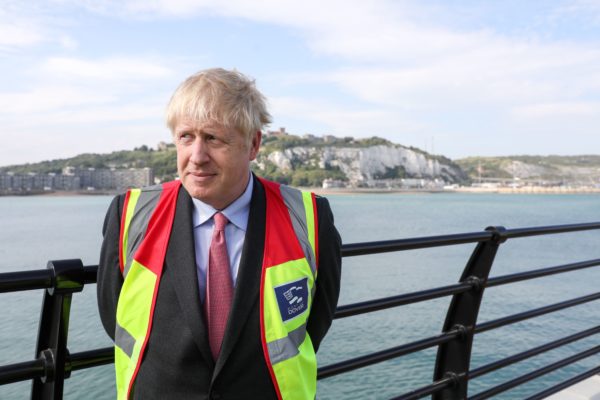Unearthed today: 8 questions about the ten point plan

Morning! I was going to take a pass this morning but then the self-isolating UK Prime Minister, Boris Johnson, launched his long-anticipated “10 point plan” on climate change.
The promise is to transform the UK’s economy to become a world leader in zero-carbon technology. It’s not a duff premise. As one of the most de-industrialised advanced economies, falling emissions and a major engineering base; the UK has an opportunity to lead the social, economic and technological changes the world needs to embrace to tackle the climate emergency.
Or, it could instead demonstrate how bold targets fail to translate to action when the rubber hits the road; failing to push industry and corporate actors as far as they need to go to reduce emissions in line with the science.
H/T to Simon Evans at Carbon brief for his great straight out of the gates thread – here’s my first – somewhat bleary-eyed – shot at some key questions about the plan.
1) The government’s ambition to end the sale of most petrol and diesel cars (exception for plug-in hybrids) sounds bold but will it date fast? Reports in the German press (repeated here) suggest the EU is effectively targeting a 2025 phase-out by reducing emissions limits below those that can be achieved by conventional engines. It’s probable the EU limit will leave more wriggle room than the UK’s 2030 one (e.g. on hybrids) but the question arises. Will the UK match the EU’s limits come 2025? The EU’s 2025 target is effectively a phased approach to the same (or a better) place than the UK and the UK’s climate advisors suggested we do the same – with a rule to force car-markers to sell ever-more electric cars. But that’s not in here. Why? Long/short, is this a plan for something bold, or a plan to do nothing much for 9 years turning the UK into a market for polluting SUV’s banned elsewhere leading one think-tank to warn the UK could blow its carbon budget.
2) The government’s plans on offshore wind are unquestionably ambitious – though they too are now being increasingly matched in the EU. The question here is – will we actually contract people to build the turbines. That needs to happen right now and is one thing that he can be judged on in the next six months. If the contracts don’t come the target won’t be hit – as the supply chain can only build out so fast and, as the pandemic has brutally exposed, we’re not China.
3) On Hydrogen. The government is giving £500m to scale-up hydrogen with at least a rhetorical focus on home heating. It’s important to know how big a part they want that to play because – as Liebrich notes – using zero-carbon hydrogen to heat homes is about four times less efficient than just using electricity (which is to say, it’s a non-starter). The signs are they want it to play a big role, because their target for electric home heating of 600,000 homes a year by 2028 is less than half what their climate advisors recommend for just two years later.
4) Also on Hydrogen. £500m isn’t much when it comes to energy, so there’s no point asking too many questions but… it’s not entirely clear if that money is going to zero-carbon hydrogen from wind or to fossil fuel companies to producing hydrogen from gas, whilst experimenting with burying some of the carbon dioxide. Obviously, those are two quite different things.
5) On reducing the amount of energy we need to use through insulation and efficiency, the government has upped it’s overall spending to £4bn. The question is what happened to the other £5bn promised in their manifesto (and very likely needed to meet their targets)? It could come in future years.
6) Offshore wind could meet almost half of the UK’s power needs from 2030 – when we are meant to be zero carbon for power. But.. what about the rest? Despite mentions and pots of money for nuclear of various sizes, carbon capture etc there’s really no clarity on that here. More is expected in the coming weeks.
7) Half of the emissions driven by the UK’s economy are produced not domestically – but overseas according to a study earlier this year. In theory – if all countries were pursuing net-zero at the same speed – this could be ignored as this imported emissions would fall with the UK’s own. But that isn’t reality, it isn’t even the (Paris) plan. If the UK were truly committed to providing a model of a transition to a zero-carbon economy a key part of that would relate to rules for products in upcoming trade deals – and eating less meat. Alternatively, the UK could pursue shiny decarbonisation policies at home whilst pursuing aggressive international trade deals which reward high-carbon agricultural and manufacturing methods. It’s not about restricting imports – but providing a new market which supports low-carbon production overseas and, in the crucial cases of food and plastics, switches demand away from high-carbon goods. The question? Will this show up anywhere in the UK’s plans before COP.
8) How much of this is new money? We always ask. It’s rarely clear.

